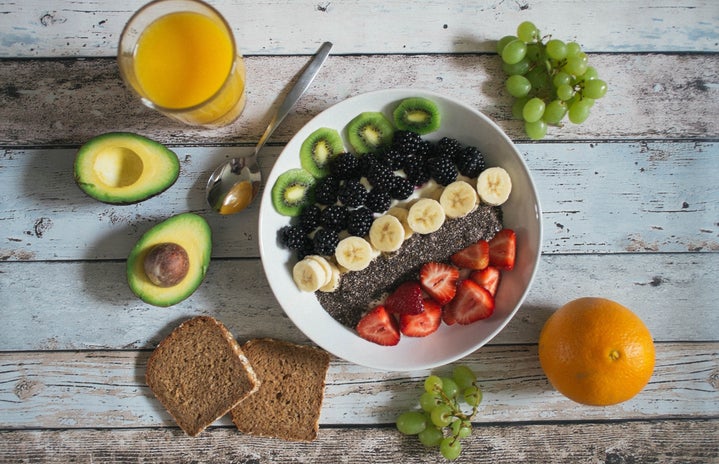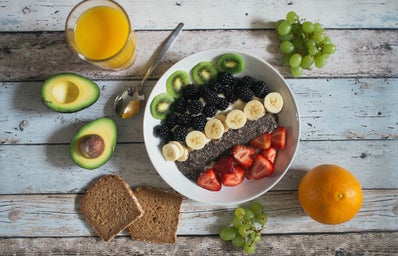Discourse surrounding veganism and nutrition, has largely focussed on how, an a vegan, it is possible to get enough protein and vitamin B12. Therefore, if you are new to veganism, or transitioning, there is plenty of information to be found on the internet about supplying your body with protein and B12 whilst avoiding animal-based products. However, one important aspect that is often ignored in such discourse is the importance of calcium. As dairy is a large contributor to most people’s regular calcium consumption, it is obvious that a plant-based diet might be lacking in the substance. It doesn’t have to be; listed below are a number of calcium containing foods that are completely dairy free, to help your transition into veganism, or even if you’re just curious.
- Oranges (65 mg (6% RDA) in 1 medium fruit)
While oranges are known for their high vitamin C content, they are also high in calcium. This low calorie snack is a great way to add more calcium to your diet. As such, orange juice is also high in calcium, so get drinking or eating to get a calcium boost.
- Almonds (72 mg (7% DV) in ¼ cup dry roasted)
Almonds are a super food for vegans – not only are they notoriously full of protein, and extremely flavourful, they also contain considerable amounts of calcium. With 7% of your RDA of calcium in just ¼ of a cup, almonds are a great snack for a nutrient kick. Almond milk is even higher in calcium, so use this as a dairy alternative in sauces, shakes and even just drink it on its own.
- White beans (191 mg (19% RDA) in 1 cup canned)
Rich in fiber, protein, iron and potassium, white beans are a vegans best friend. The healthy carb can boost metabolism, and in addition has a large amount of protein in. They can be used to thicken soup, in salads, or in a bean burger.
- Figs (107 mg (10% RDA) in 8 whole dried figs)
Figs are a great way to introduce some more calcium into your diet. The sweet, uniquely flavoured fruit is the perfect addition to a salad, but can just be eaten on their own as a snack. Not only are they full of calcium, they are also great for the digestive system, being high in fibre, and recommended to nourish the intestines.
- Bok Choy (74 mg (7% RDA) in 1 cup)
Otherwise known as Chinese cabbage, Bok Choy is a leafy green that is perfect if you’re looking to minimise calorie intake but still consume a healthy amount of nutrients. High in vitamin A, C, K B6 and folate, this vegetable is a great way to boost your vitamin intake, as well as calcium. Add to stir fry’s, ramen or even fry it and eat as a side dish.
- Kale (188 mg (19% RDA) in 2 cups )
Ah Kale – a vegan’s best friend. Available all year round, easy to grow and packed with nutrients, this leafy member of the cabbage family is extremely versatile. The calcium density also makes it the perfect substitute for calcium-rich dairy foods. Add to smoothies, boil or put in a stew for a great nutrient kick!
- Porridge ( approx. 187 mg (19% RDA) in 1 cup)
This one is slightly different to the others so far on the list – the fruits and veg listed have all been natural sources of calcium. However, porridge is on here as instant oats are often fortified with calcium. Moreover, when made with non-dairy milks such as almond milk or rice milk, porridge makes a hearty and calcium-dense breakfast, perfect for a winter’s morning.
- Tofu (861 mg (86% RDA) in ½ cup)
Tofu is made from soybeans, which are naturally high in calcium, but tofu gets an extra kick of calcium from the gypsum that is used to change the soybean liquid into curds. As such, the firmer the tofu, the more calcium it contains. Be aware that silken tofu, that you might use to make soup or sauces won’t have as much calcium, but firm tofu does!


